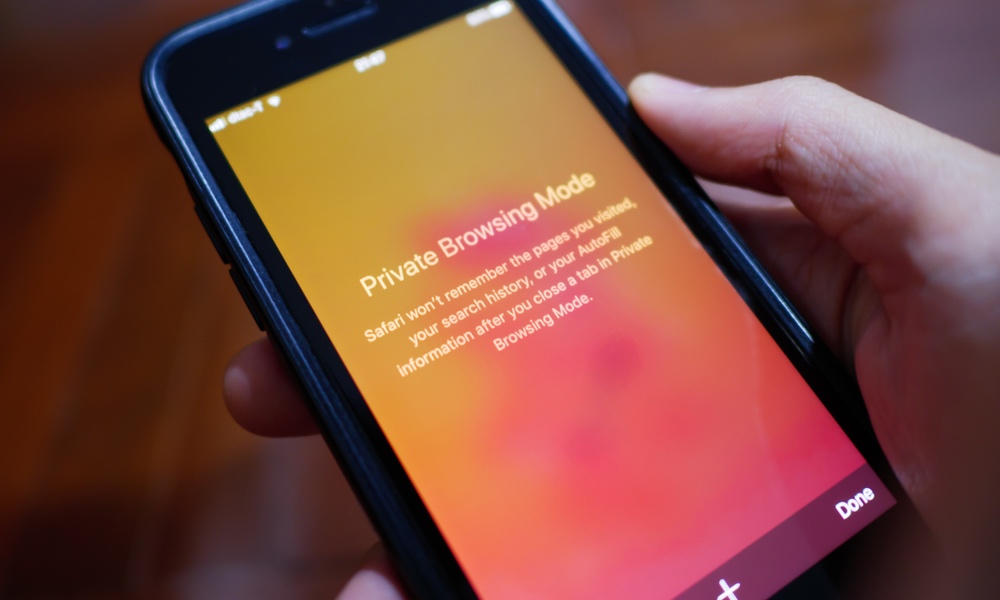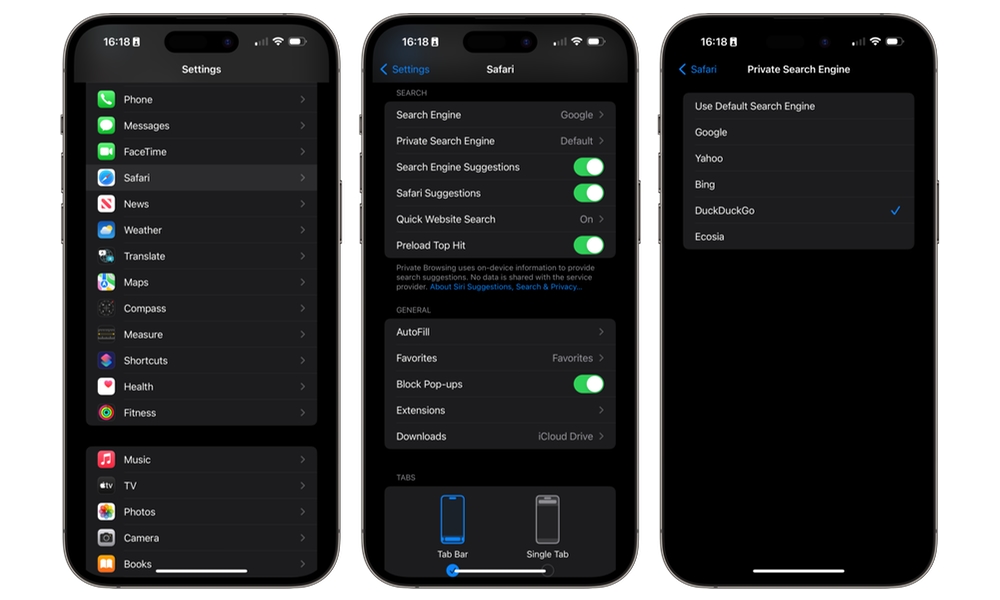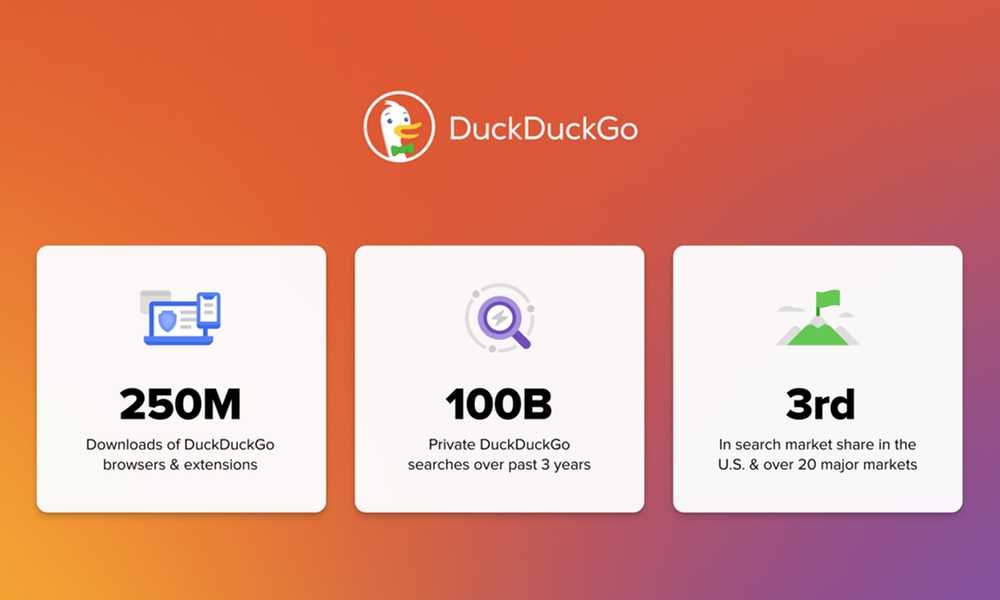The Best Search Engine for Private Browsing in iOS 17
 Credit: Wachiwit / Shutterstock
Credit: Wachiwit / Shutterstock
Toggle Dark Mode
In addition to fun stuff like StandBy mode and interactive widgets, iOS 17 also introduces several new security features, not the least of which is considerably more secure Private Browsing in Safari.
With iOS 17, iPadOS 17, and macOS Sonoma, you can now keep curious eyes away from your Private Browsing sessions by protecting them with Face ID, Touch ID, or your passcode. Apple is also adding more aggressive tracker blocking and link tracking protection to help protect your privacy and anonymity even more when using Private Browsing.
However, Apple can only do so much; sites that really want to keep track of your identity as you browse the web will find a way to do so, and you could be negating many of Apple’s protections if you’re using Google as your primary search engine. After all, Google has been caught deliberately bypassing Apple’s security settings before.
Of course, switching search engines is hard. While there are some great privacy-focused search engines — DuckDuckGo is our favorite by far — it’s hard to argue that Google still provides the best search results of any search engine out there. Even while using DuckDuckGo, when the results don’t look promising, we’ve often found ourselves adding “!g” before a search to send it to Google instead.
The Best of Both Worlds
While we still think DuckDuckGo is the best search engine to use all the time, it’s understandable that many folks are more comfortable in the world of Google Search.
However, it could be self-defeating to use Google Search in a Private Browsing session, and the good news is that Apple has thought of this in iOS 17 by adding a new feature that lets you use a different default search engine for Private Browsing from the one you use during normal sessions.
This way, you can use Google for your everyday surfing if you want to while still opting for a privacy-preserving option that matches the spirit and intent of Apple’s Private Browsing. Here’s how to set it up:
- Open the Settings app on your iPhone or iPad.
- Scroll down and select Safari.
- Choose Private Search Engine.
- Select DuckDuckGo from the list.
Alternatively, you can also choose Yahoo, Bing, or Ecosia if you prefer one of those. While their privacy policies aren’t as strict as DuckDuckGo, they’re arguably better than the Big G, and Ecosia will even plant trees every time you use it for a search.
You can also do the same on macOS Sonoma by going to Safari > Settings and selecting the Search tab.
Related: 12 DuckDuckGo Tips and Tricks You Need to Know
DuckDuckGo Celebrates 15 Years
In related news, we were surprised to learn that DuckDuckGo is celebrating its 15th anniversary. That means it’s been around for nearly as long as the iPhone, which was launched only a year earlier.
Of course, if you hadn’t heard of DuckDuckGo back then, we can’t blame you. It wasn’t until iOS 8 in 2014 that Apple added DuckDuckGo as a default search option in Safari, which significantly increased its mainstream exposure. Before that, DuckDuckGo was available as a built-in search option only on relatively niche platforms like GNOME, the GUI used on most Linux and other *nix based operating systems.
While Apple was the first to make the bold move of embracing DuckDuckGo in iOS 8, Mozilla brought it to Firefox later that same year, and Google finally added it as an option in Chrome in 2019, ironically around the same time DuckDuckGo switched to using Apple Maps to power all of its mapping features.
Although rumors persist that Apple could be building a search engine of its own, most of those stem from the work Apple is doing with Siri and other more integrated search options. We’ll likely never see a standalone Apple search engine like what Google offers, which is why it’s great that the privacy-conscious users Apple caters to have DuckDuckGo.
Here are some other interesting facts that DuckDuckGo’s founder and CEO, Gabriel Weinberg, shared today:
- Gabriel’s sister made the original logo, which his wife refined before launch.
- The name of the duck mascot (on the logo) is Dax Brown.
- For the first few years, DuckDuckGo ran off of servers Weinberg maintained in his basement. The FBI once showed up at Weinberg’s home after he crawled a site they were monitoring.
- Many features that Google eventually replicated, like Instant Answers, favicons, and infinite scrolling, were actually pioneered by DuckDuckGo.
- DuckDuckGo has been blocked in China since 2014, although nobody seems to know why.
DuckDuckGo has also proven that it’s possible to run a successful search engine without relying on privacy-invasive monitoring and profiling techniques. As Weinberg explains, DuckDuckGo has been profitable since 2014 by running only private search ads. These ads appear based only on the specific search results you’re currently viewing; they have no connection to even what you last searched for two seconds earlier, much less any of your other activity on DuckDuckGo or elsewhere on the web.









